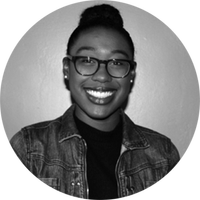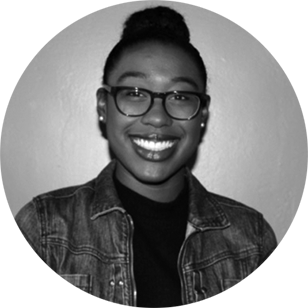Sorry, white people: Black women are not trying to save you
They're just trying to save themselves

A free daily email with the biggest news stories of the day – and the best features from TheWeek.com
You are now subscribed
Your newsletter sign-up was successful
When Stacey Abrams became the first black woman to win a major party gubernatorial nomination in Georgia on Tuesday, it was a sign of things to come. There are 603 black women candidates running in 2018, and while it's impossible to say whether that's a record, it certainly feels like one.
In 2018, it's clear that black women are done being ignored and they’re done looking to save White America come election time. They're looking to save themselves.
In the special elections following President Trump's victory in the 2016 presidential contest, black voters have repeatedly delivered for the Democrats, crushing turnout numbers in Virginia and, most notably, Alabama. As a result, liberals across the country have sung their praises, thanking black women for delivering them from further Republican dominance. "Let me be clear: We won in Alabama and Virginia because #BlackWomen led us to victory," Democratic National Committee chairman Tom Perez tweeted after Democrats upset the GOP in Alabama.
The Week
Escape your echo chamber. Get the facts behind the news, plus analysis from multiple perspectives.

Sign up for The Week's Free Newsletters
From our morning news briefing to a weekly Good News Newsletter, get the best of The Week delivered directly to your inbox.
From our morning news briefing to a weekly Good News Newsletter, get the best of The Week delivered directly to your inbox.
Yet black women's turnout this year was really no surprise. Long the foundation of the Democratic Party, black women routinely vote at the highest rate of any gender or racial subgroup in the American electorate. During the 2008 and 2012 presidential elections, for example, 95 percent of black women turned in ballots for Barack Obama. In 2012, more than 70 percent of black women voted, outvoting black men (61.4 percent), white men (62.6 percent), and white women (65.6 percent) by large margins. And while their raw turnout numbers may have dipped slightly in 2016, they still overwhelmingly supported the Democratic Party by giving 95 percent of their votes to Hillary Clinton. In fact, since President Lyndon Johnson signed the Civil Rights Act into law in 1964, black Americans have never given Democrats less than 80 percent of their vote.
But what has come of this unwavering support? Underrepresentation and presumptions.
At 7.3 percent of the U.S. population, black women amount to less than 5 percent of officeholders in Congress. That underrepresentation also belies an even worse situation both up and down the ballot. Only five mayors of the nation's 100 most populous cities are black women, just 12 black women have ever held statewide elected executive offices, zero black women have ever been elected governor, and there’s only one black woman in the Senate.
This underrepresentation has resulted in policy choices that routinely fail black women. As my colleague Ryan Cooper pointed out, Democrats' thanks has simply not translated into actual policy, even this year. The black community, especially black women, continue to be disproportionately affected by poor access to health care — just look up how many black mothers die during childbirth compared to white mothers — police violence, sexual violence, and an educational system in which they receive excessive discipline. Yet when the polls close and the politicians head to D.C., policies to address these crises always seem to be sidelined for fear of alienating white voters. Even Alabama's new Democratic Sen. Doug Jones was last spotted helping to roll back regulations aimed at preventing racial discrimination in real estate.
A free daily email with the biggest news stories of the day – and the best features from TheWeek.com
This is why black women are taking matters into their own hands this year. Before her groundbreaking victory in the Georgia primary, Stacey Abrams persistently spoke of expanding Medicaid, addressing Georgia’s extreme birth mortality rate, reforming the criminal justice system, and fully funding public education. And while that's not a novel platform for a Democrat, when she says it, you can tell she means to follow through.
Abrams might be one of the more notable candidates for the midterm elections, but there are several other black female congressional candidates running in Mississippi, Florida, Colorado, Massachusetts, Pennsylvania, and Illinois. They’re all perfectly viable options — intelligent and compassionate black women looking to change the political landscape.
The pattern of policymakers wooing black voters, thanking the black community after they win, and then doing little to make their grievances a priority is not good enough. Black women deserve real support. That’s why they're coming for those seats in Congress.
Amari Pollard is the social media editor at The Week and has written for Reader's Digest, Parents, and Inside Lacrosse. She studied journalism at Le Moyne College and can usually be found exploring Brooklyn, thrift shopping, or spending way too much money on brunch.
-
 Political cartoons for February 14
Political cartoons for February 14Cartoons Saturday's political cartoons include a Valentine's grift, Hillary on the hook, and more
-
 Tourangelle-style pork with prunes recipe
Tourangelle-style pork with prunes recipeThe Week Recommends This traditional, rustic dish is a French classic
-
 The Epstein files: glimpses of a deeply disturbing world
The Epstein files: glimpses of a deeply disturbing worldIn the Spotlight Trove of released documents paint a picture of depravity and privilege in which men hold the cards, and women are powerless or peripheral
-
 The billionaires’ wealth tax: a catastrophe for California?
The billionaires’ wealth tax: a catastrophe for California?Talking Point Peter Thiel and Larry Page preparing to change state residency
-
 Bari Weiss’ ‘60 Minutes’ scandal is about more than one report
Bari Weiss’ ‘60 Minutes’ scandal is about more than one reportIN THE SPOTLIGHT By blocking an approved segment on a controversial prison holding US deportees in El Salvador, the editor-in-chief of CBS News has become the main story
-
 Has Zohran Mamdani shown the Democrats how to win again?
Has Zohran Mamdani shown the Democrats how to win again?Today’s Big Question New York City mayoral election touted as victory for left-wing populists but moderate centrist wins elsewhere present more complex path for Democratic Party
-
 Millions turn out for anti-Trump ‘No Kings’ rallies
Millions turn out for anti-Trump ‘No Kings’ ralliesSpeed Read An estimated 7 million people participated, 2 million more than at the first ‘No Kings’ protest in June
-
 Ghislaine Maxwell: angling for a Trump pardon
Ghislaine Maxwell: angling for a Trump pardonTalking Point Convicted sex trafficker's testimony could shed new light on president's links to Jeffrey Epstein
-
 The last words and final moments of 40 presidents
The last words and final moments of 40 presidentsThe Explainer Some are eloquent quotes worthy of the holders of the highest office in the nation, and others... aren't
-
 The JFK files: the truth at last?
The JFK files: the truth at last?In The Spotlight More than 64,000 previously classified documents relating the 1963 assassination of John F. Kennedy have been released by the Trump administration
-
 'Seriously, not literally': how should the world take Donald Trump?
'Seriously, not literally': how should the world take Donald Trump?Today's big question White House rhetoric and reality look likely to become increasingly blurred
